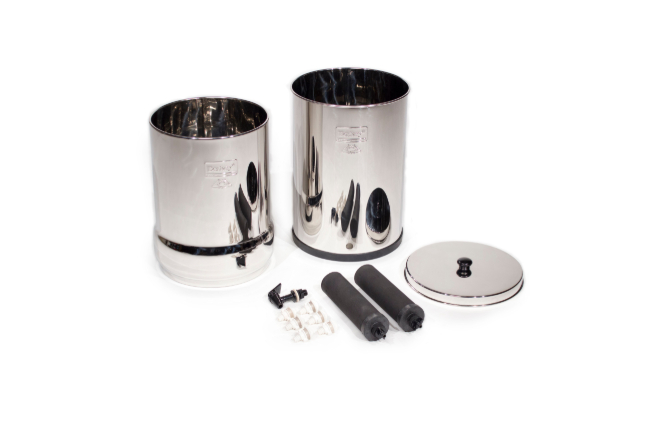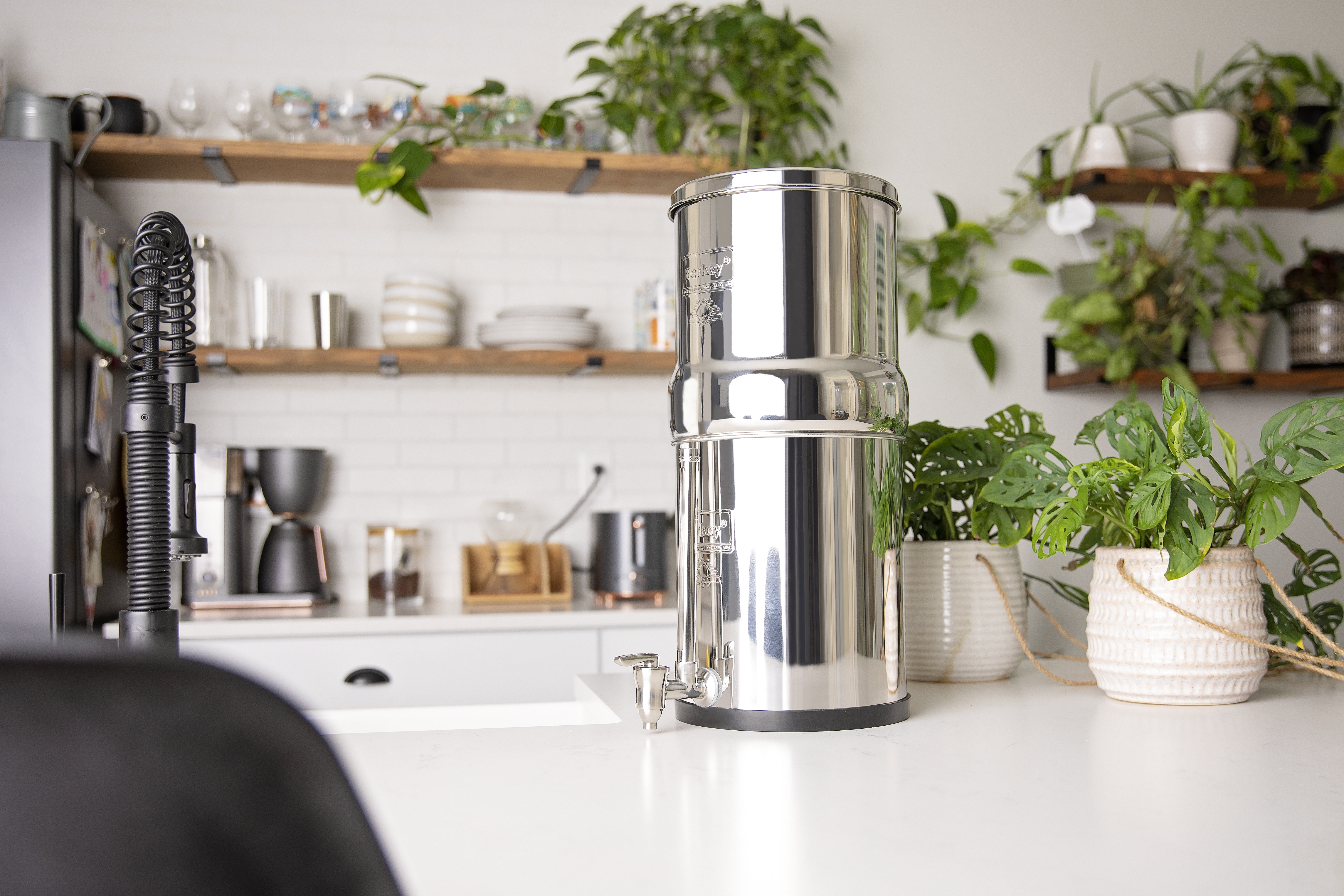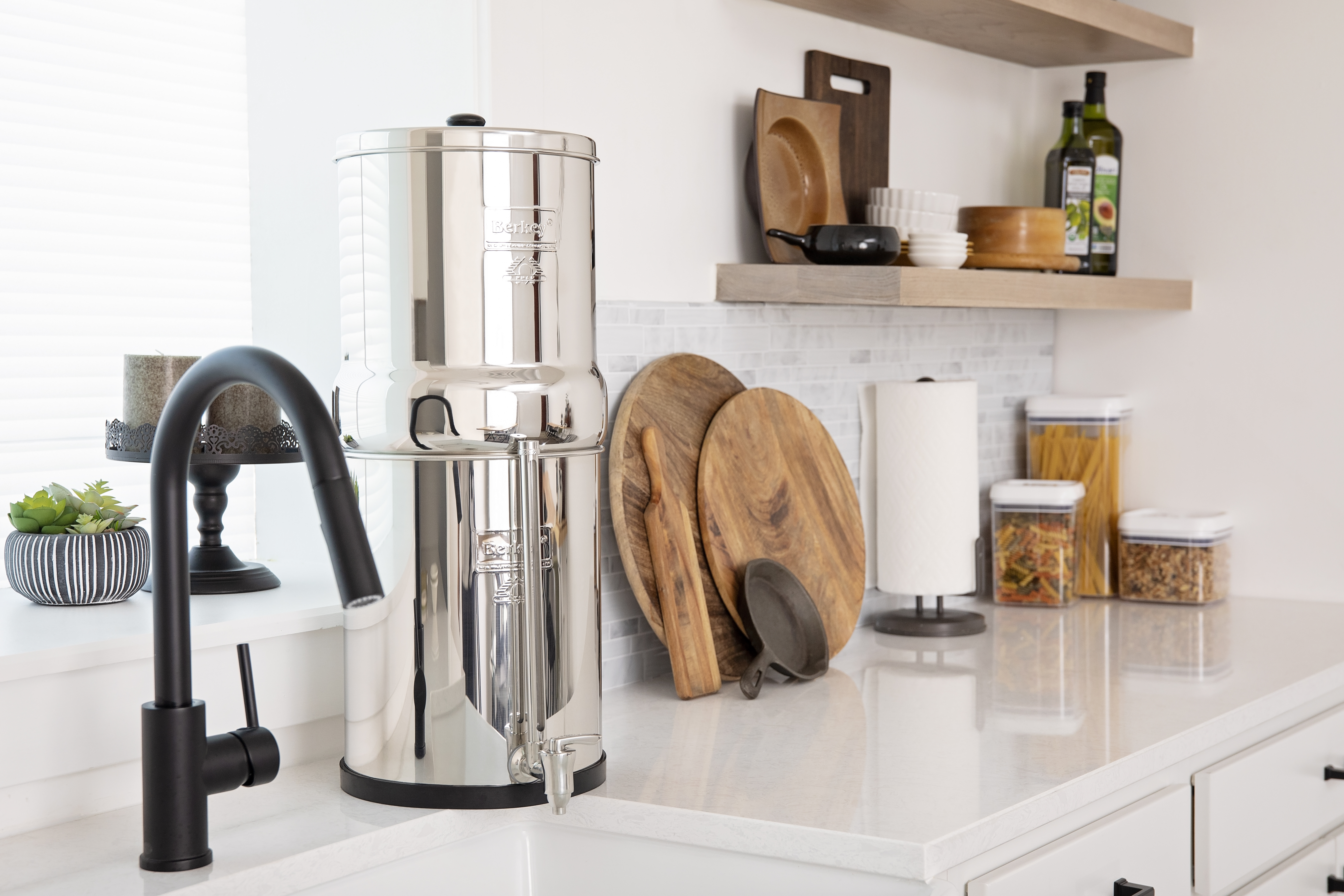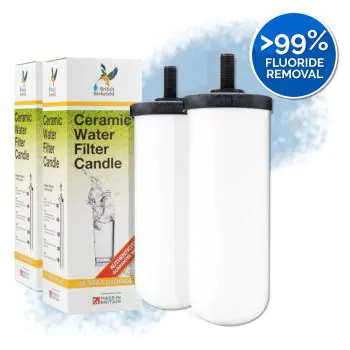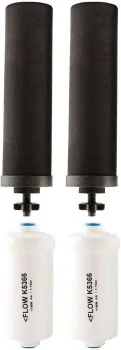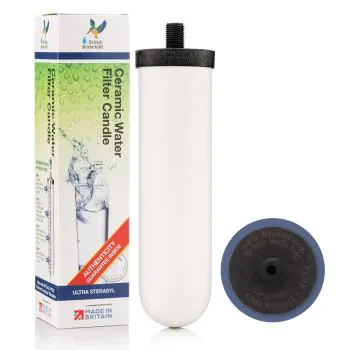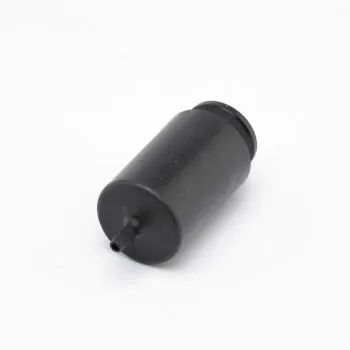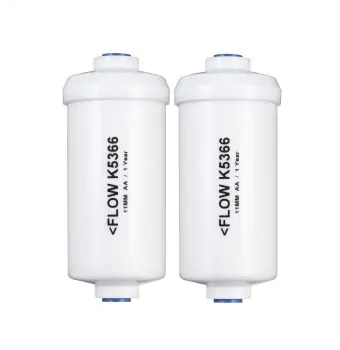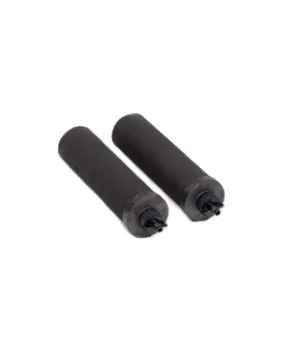Berkey water filters are one of the most popular countertop water filters on the market, not only because they are extremely effective at removing a wide range of contaminants, but also due to the long lifespan of their purification elements, which makes them very cost-effective in the long run.
However, in order to get the most from your Berkey water purifier, you need to clean the filters from time to time. This will ensure optimal efficiency in terms of removing pollutants from your drinking water, and will also extend the life of your filter elements, allowing your Berkey water filter system to continue providing you with clean, safe drinking water for a longer period of time. Follow the steps outlined below to learn how to clean Black Berkey filters.
From this article, you'll learn:
- Can you clean Black Berkey Water Filters?
- How often to clean Black Berkey filters?
- How to clean Black Berkey water filters
- When to replace Berkey water filters?
Can You Clean the Black Berkey Water Filter Elements?
One thing that sets Berkey water filtration systems apart from their competition is the ability to clean the filter elements. This effectively extends their life, meaning you do not have to replace the filter elements that often.
Depending on the water quality, a set of two Black Berkey purification elements will typically filter 6,000 gallons of water or last around three years, before they will need to be replaced. But during this time they may become clogged with pollutants and sediment that will block the pores and slow down the flow rate of the filtration process. When this occurs, it's time to consider cleaning the filter elements.
The Berkey PF-2 fluoride and arsenic filters can also be cleaned, but since they are fitted to the base of the Black Berkey filter elements, the water that passes through them has already had pollutants filtered out. Therefore, the PF-2 filters typically don’t tend to get as clogged as the Black Berkey elements.
However, as they can be prone to mold if the system is not used frequently and water is left to stand for a long period, it is a good idea to check them from time to time. We recommend cleaning both the Black Berkey’s and the PF-2 filters when doing routine cleaning and maintenance, especially if your Berkey has been stored and hasn’t been used for an extended period.
How Often To Clean Black Berkey Filters?
How often you'll need to clean your Berkey filter elements will depend on the quality of your tap water. If your tap water has a high load of pollutants, you will need to clean your Black Berkey purification elements more frequently to ensure your Berkey system continues to work efficiently.
A set of two Black Berkey purification elements will typically deliver clean water at a flow rate of 1 gallon per hour. When the system is fitted with four Black Berkey filter elements, this flow rate is increased to approximately 2 gallons per hour. When the flow rate starts to decrease significantly, and you notice a drop in performance, it may be time to scrub your filters to remove any sediment and accumulated pollutants that may be clogging up the micropores and inhibiting water flow.
If you are in any doubt, you can try the red dye test to check how efficiently your filters are working. To do this, add some artificial red food coloring to the upper chamber; if the filtered water has a pink tinge to it, it may be time to clean your filter elements if they have not reached the end of their lifespan.
Watch the video below to learn how to conduct the red food dye test. Berkey recommends cleaning your elements regularly every 6 months, or at least once a year, to maintain optimal filtration efficiency.
Learn How To Clean Black Berkey Water Filters the Right Way
Below you'll find instructions on how to clean Black Berkey filters. You can clean them under running water in a sink, or if you are in the field without access to running water, you can clean them in a bucket, following the steps outlined below:
- Fill up your basin, sink, or bucket with clean, unpolluted water. If the water source you are using is suspect, add 16 drops of household bleach or iodine for each gallon of water used to disinfect it.
- Empty all water from the upper and lower chambers of your system.
- Remove the upper stainless steel chamber and set it aside on a solid surface upside down.
- Loosen the wingnuts that hold the Black Berkey filter elements in place, and remove them along with the washers beneath them., placing them somewhere safe.
- Remove the filters from the upper chamber and hold them under running tap water with the open end of the filter pointing upwards. If you are using the bucket method, it is important that your water source is purified, as outlined in step 1.
- To clean the filters, gently scrub the exterior surface using the sponge that came with your maintenance kit or with a clean Scotch Brite pad. Do not wash with soapy water or harsh detergents, as these can damage the filter.
- Allow the dirty water to drain away, or discard if using a bucket, then refill with clean water, disinfected with bleach/iodine if necessary.
- Rinse the filter elements in the clean/treated water.
- For optimal performance, Berkey recommends re-priming the filters after they have been cleaned. This ensures any dirt or grit that may have clogged the pores during the scrubbing process is expelled before the filters are reinserted into your Berkey.
- Clean the wing-nuts, washers, spigot, and rubber base, as well as the stainless steel chambers.
- Reinstall the filter elements back into your system's upper chamber, taking care not to over-tighten the wing-nuts.
That's how you clean Black Berkey filters. You may be also wondering, how to clean Berkey fluoride filters? The answer is: exactly the same. Follow the same instruction to clean PF-2 filters.
When is it Time to Shop for Replacement Filters for your Berkey System?
When cleaning your filters, you should also visually inspect them for signs of wear and tear. As worn or damaged filters could allow pollutants to pass through to the lower chamber without being filtered properly, should you notice any surface damage it’s time to replace the filters.
If after cleaning your Berkey filters, you notice that the filtration rate continues to be slow or your water smells or tastes bad, the filters are not functioning optimally and have likely reached the end of their life and will need to be replaced.
By adhering to a regular cleaning schedule and following the step-by-step instructions outlined above, you will extend the life of your Black Berkey purification elements and keep your Berkey water filter system working optimally to ensure you have a steady flow of safe drinking water on tap.
Replacement Filters for Berkey Systems
Black Berkey Walter Filters: How to Clean | Frequently Asked Questions
Can you clean Black Berkey filters?
Yes, you can. Gently scrub the Black Berkey filters using a sponge or Scotch Brite pad and clean water.
Can you clean Berkey fluoride filters?
Yes, you can clean the Berkey PF-2 Fluoride and Arsenic water filters.
How to clean Berkey PF-2 fluoride and arsenic filters?
To clean Berkey PF-2 filters, follow the same process as for the Black Berkey filters.
Can you clean Berkey filters with vinegar?
No. Do not use vinegar to clean the Black Berkey filters or PF-2 filters. While vinegar is useful for removing limescale deposits caused by hard water that may build up on the inside of the chambers, you need to avoid while cleaning the Berkey filters.
How often should I clean Berkey filters?
Berkey recommends cleaning your filters every 6 months, however, if your water is highly polluted they may need to be cleaned more frequently.
Berkey filtering slow after cleaning, what could be the problem?
If your Berkey is not working properly after cleaning, the pores may have got clogged up during the cleaning/scrubbing process. Re-prime the filters, to dislodge any dust or sediment that may be causing an issue. If the problem persists, it may be time to replace the filters.

